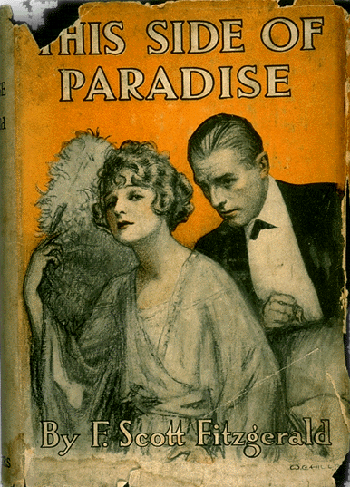The Great Gatsby Contents
The Epigraph
If you can bounce high, bounce for her too,
Till she cry, ‘Lover, gold-hatted, high-bouncing lover,
I must have you!’— Thomas Parke D’Invilliers
 Summary
Summary
Fitzgerald opens the novel with an epigraph which consists of a poem, purportedly written by Thomas Parke D’Invilliers. D’Invilliers is a character in another of Fitzgerald’s novels, This Side of Paradise, so this poem is in fact written by Fitzgerald. The poem is four lines long and addresses a lover, offering advice for winning the affections of a woman.
Commentary on the Epigraph
The epigraph raises several questions:
- Why attribute it to a fictitious poet? Does Fitzgerald amplify the illusory quality of his novel by using this device?
- What does the poem mean? It advises a lover to ‘wear the golden hat… bounce for her…’ in order to make the woman exclaim ‘… I must have you!’ How do these actions relate to the actions of the lovers, particularly Gatsby, in this novel?
The form of the poem is straightforward: 4 lines, abab rhyme scheme with a rhythm that reflects the idea of a ‘high-bouncing lover’ and a strong emphasis placed on the shortened but heavily stressed final line, ‘I must have you!’
Because of the allusive nature of ‘Then…’ and ‘the golden hat’ and the lack of specific referents for the pronouns, there is a sense that this poem is making exophoric references (a term from linguistics which means a text is referring to something extra-linguistic/outside of the text), perhaps because it may be an extract from a longer poem.
However, this is a construct by Fitzgerald and in fact acts as an example of the illusory elements of The Great Gatsby as a whole. What purports to be enigmatic is merely a trick and as such, it functions to draw attention to the theme of superficiality and manipulation of appearances which is at the heart of the corrupt world described by Nick.
The image of a lover donning a gold hat and ‘bouncing’ also relates to the theory in Chapter 1 that:
In other words, something usually regarded as personal and interior is revealed to be merely an outward gesture, which has been sustained and is convincing to the public. The lover here will succeed because of his outward appearance and actions, rather than because of some deep emotional connection with the woman.
Recently Viewed
Scan and go

Scan on your mobile for direct link.